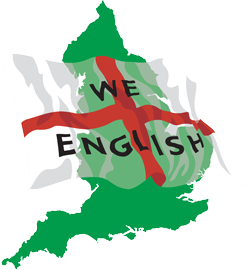TRUE BRITS – PANORAMA
August 27th, 2008 adminOn Monday night, Panorama looked at the issue of Britishness in a program called True Brits. Unfortunately I missed it, but here is the background information on the program, taken from the Panorama website.
“In June this year, Liam Byrne, home office minister for borders and immigration, mooted the idea that the August bank holiday be made Britishness Day – a day of national celebration of our country along the lines of America’s 4 July holiday. His suggestion was instantly dubbed a “blunder” by the Scottish National Party, which was quick to point out that the August bank holiday is at the start of the month in Scotland, while in England and Wales it is at the end.
But even if this scheduling glitch could be overcome, huge questions still remain about how Britishness should be defined. So, on the very day which Mr Byrne suggested should be Britishness Day, Panorama: True Brits tries to answer the question what exactly is Britishness? And just as importantly, why is the government suddenly talking about it? However, as Panorama reporter Vivian White soon finds, virtually everyone seems to have a different definition of what Britishness is – that is if they are able to come up with one at all.
‘Loss of freedoms’
Prime Minister Gordon Brown – who revealed this month that he is preparing to write a book on what it means to be British – has said that it is all about shared values:Â “We share the same values about liberty, about democracy, about the need for social cohesion and for people to work together co-operatively,” Mr Brown said.
People tell Panorama what they think symbolises Britishness. But fashion designer Vivienne Westwood, who in the 1970s used satirical images of the Queen when creating her iconoclastic punk styles, tells the programme that those values and freedoms are disappearing fast, and that the government is leading the way in dismantling them.
British National Party (BNP) chairman Nick Griffin says being British is about being of British stock, in other words white. But in recent decades the ethnic makeup of Britain has been transformed by mass migration.
Governments both past and present called on people to celebrate their differences and called it “multiculturalism”. In July 2005 projecting that rainbow world identity helped us to win the prize of hosting the 2012 Olympics.
But the very next day a few British citizens made it clear their loyalties lay elsewhere by mounting the 7 July suicide bomb attacks on the London transport system, forcing Britishness and a debate about what it means be British top of the agenda.
Radical view
However, as True Brits reports, when the government poses the question “are you really one of us?” the answer is often not a simple Yes or No. Mozzam Begg, a British-born radical Muslim, is best known for having spent two years in Guantanamo Bay, only to be finally released without charge. When being held by at the US detention facility his American guards were in no doubt as to his Britishness – referring to him by the name Great Britain and even making sure that he was kept informed when the Queen Mother died. He however, is not so sure, telling the programme that he does not “think anybody knows actually what Britishness is including the people who want to tell us what they think Britishness is”.
And north Yorkshire schoolboy Cameron agrees. He believes the government are asking us to define Britishness for them because they don’t know what it is and need our help.
When asked whether “being British is more important to my sense of identify than my family’s country of origin” 43% of young people from ethnic minorities disagreed as opposed to 29% of their white counterparts. In other words young people from ethnic minorities are more likely to plump for their family’s country of origin as their marker of identity than young white people.
Rite of passage
And they are not alone – as the programme reports, in 1974 when forced to pick only one national identity, 31% of people in Scotland said that they were British, but by 2006 this figure had fallen to 14%. In 2005 the government introduced new procedures for foreigners wanting to become British citizens whereby applicants have to read a book called Life in the UK and sit a 45-minute test on society, history and culture before taking part in a ceremony marking their change of nationality.
The programme asks if this kind of education about Britishness and ceremony should be extended to young people turning 18, to mark their graduation to full status as a True Brit. One of the teenagers Vivian speaks to says that the government should not be asking what is Britishness is at all because a British citizen will be different everywhere you look.
Perhaps this in itself is something to celebrate. But, as the programme reports, even if we could agree on what to celebrate we are unlikely to agree on how to – after all isn’t all of that Union Jack waving stuff frankly rather un-British?”
Â
Here are some viewers comments about the program.
Â

